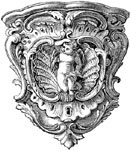
The Incarnation Made Scientifically Credible?
HOW WAS "THE WORD MADE FLESH" MADE FLESH?
Someone once wrote, “At the Incarnation,something gynecological happened.” Although I can no longer remember the author or the locus of this rather unsettling assertion, the physician in me has never been able to let go of it. “Something gynecological….” At the waning of the 20th century, though we are far from comprehending how “the Word became flesh,” we are better equipped scientifically than any age before us to attempt to understand how that precious flesh came to be. A respectful and delicate exploration of the “gynecology of the Incarnation” can lead to some interesting, if very tentative, conclusions.
First let us recall that up until the 19th century — and certainly back in the Mediterranean world of two millennia ago — science held that the seed of the male contained a whole tiny human being in embryo — the so-called homunculus. Thus the essence of a child’s flesh, according to this view, came solely from the father. Any resemblance between mother and child was attributed to “maternal influences,” and the mother’s main role was to provide a nurturing environment in which the homunculus could grow.
Thus the first-century mind was even more likely than a modern mind to find incredible the assertion that a child could be conceived without a father’s participation. The understanding of such an occurrence consonant with the embryology of the times would have been this: God accomplished the virginal conception by creating, de novo, a homunculus to be the flesh of His Incarnate Word, and implanted this homunculus in a suitable female incubator. But the Church, in opposition to the science of the ancient world, insisted, on the contrary, that Christ took His flesh and humanity from His Mother, the Blessed Virgin Mary.
There were important theological considerations behind this insistence, considerations that had nothing to do, primarily, with Mary and her role in the economy of salvation. What weighed most heavily was the crucial importance of Christ’s true human nature. For if God had simply conjured a human form into existence at the Incarnation, then Christ would not have been truly “the Son of Man.” He would have been “true God from true God,” yes — but not really “true man from true man,” and His death on the Cross would not have been a genuine atonement for the sin of Adam and his descendants. The gulf separating the divine from the human would have remained as unbridged and unbridgeable as ever. As Aquinas put it later, in Summa Theologiae III.26.ii, “Although it belongs to Christ as God to take away sin authoritatively, yet it belongs to Him, as man, to satisfy for the sin of the human race.” Therefore the Church asserted that Christ must have received His human flesh from His mother.
You May Also Enjoy
All but the last two mysteries of the Rosary are taken directly from Scripture, and even the Assumption and Coronation are “veiled” there in the Prophets.
This feast's celebration can be traced to at least the seventh century in Constantinople and the ninth century in the West. But the underlying tradition is much older.
An intelligent group like feminist theologians could manufacture six or seven attractive religious ideas in any given morning, and then invent a sacrament or two over lunch.

